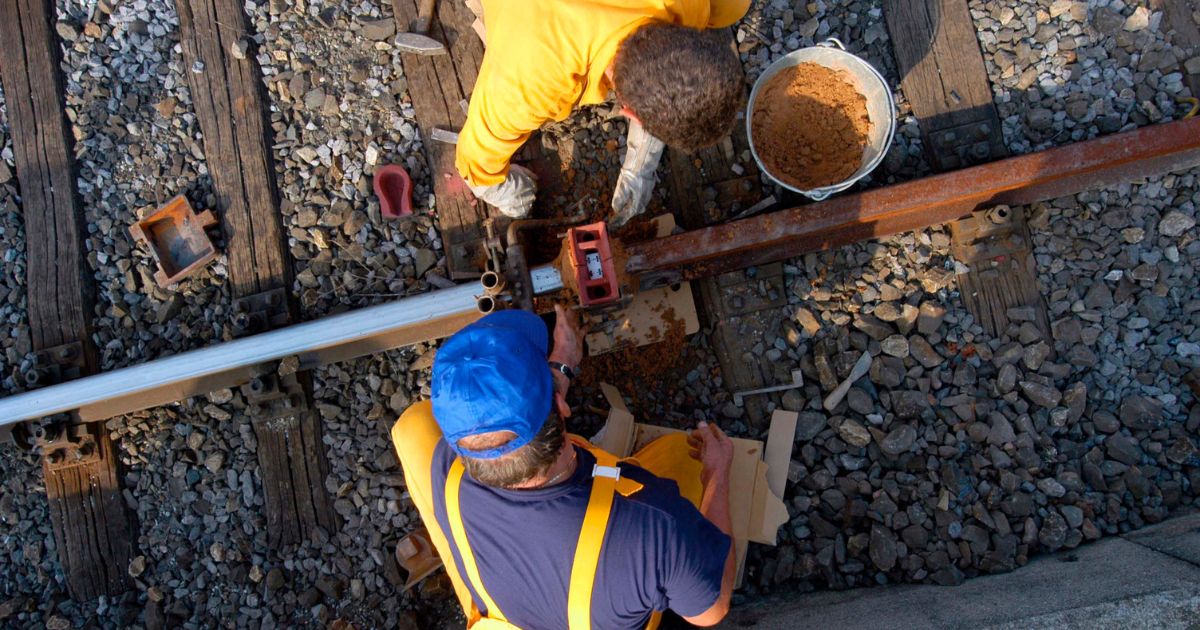
More than 3,200 railroad employees suffered work-related injuries in 2021, and 11 died from their injuries. Railroads are inherently dangerous due to the extreme size and weight of the rail cars and the often-dangerous cargo they convey.
A train of fully loaded rail cars is among the heaviest moving objects that anyone might encounter. One mistake is all it takes to cause potentially catastrophic injury or death.
Injuries that railroad workers commonly suffer include:
- Amputations
- Broken bones
- Electrical shock or electrocution
- Repetitive motion injuries
- Traumatic brain injuries
A railroad worker might come into contact with caustic or flammable materials that cause burns. Heavy objects might fall, causing crushing injuries. Moving objects might pin a railroad worker, causing deadly injuries.
Railroad workers also often suffer repetitive motion injuries, such as carpal tunnel and tennis elbow. Throwing switches, getting on and off rail cars, and continual vibrations while trains are underway are all examples of railroad-specific repetitive motions that can result in repetitive motion injuries.
Federal Protection for Injured Railroad Workers
The Federal Employment Liability Act (FELA) protects railroad workers against the costs of suffering work-related injuries. FELA is similar to workers’ compensation but is a little more stringent.
When filing a FELA claim, the railroad worker must show how the employer’s negligence caused the injury. Employer negligence could cause injuries in many ways, such as when the employer does not:
- Create and enforce workplace safety rules
- Provide sufficient manpower to work safely
- Supply workers with proper tools and safety equipment
- Train railroad workers properly
The requirement to provide evidence of employer negligence and how it caused the injury makes filing a FELA claim more difficult than when filing a typical workers’ compensation claim.
Potential FELA Benefits for Injured Railroad Workers
FELA benefits are similar to those provided by workers’ compensation coverage. FELA benefits should pay for your medical costs, including physical therapy and any vocational training that you might require due to your work-related injuries.
Railroad workers can obtain FELA benefits for:
- Broken bones, sprained or pulled muscles, and other traumatic injuries
- Diseases caused while working, like asbestosis, lung cancer, and hearing loss
- Injuries caused by repetitive motions
- Pre-existing conditions that become aggravated due to railroad work
In addition to medical costs and physical rehabilitation, FELA benefits should pay for lost wages, related transportation costs, and other damages that a railroad worker might suffer due to a work-related injury.
Federal law allows up to three years to file a FELA claim following the diagnosis of work-related injuries, illnesses, or diseases. It is important to know when the statute of limitations begins running and how long you might have to file a FELA claim.
If you are partly responsible for causing your injury or illness, any FELA settlement might be reduced. For example, ignoring safety training or not wearing safety gear provided to you by your employer might contribute to your injury, in which case your FELA settlement might be reduced.
A court might determine your negligence partially caused your injury and reduce your settlement by an equal percentage. If you are 25 percent liable, your settlement could be reduced by 25 percent.
An experienced workers’ compensation and FELA lawyer can help you to understand how FELA claims work. The attorney also could help you file a well-supported claim.
Coatesville Workers’ Compensation Lawyers at Wusinich, Sweeney & Ryan LLC, Help Injured Railroad Workers
You can file a well-supported FELA claim with the help of the experienced Coatesville workers’ compensation lawyers at Wusinich, Sweeney & Ryan, LLC. Just call 610-594-1600 or complete our online form to schedule a free consultation at our law office in Exton, Pennsylvania. We represent clients in Downingtown, West Chester, Exton, Coatesville, Phoenixville, Malvern, Lyndell, Wagontown, Uwchlan, Parkesburg, Chester Springs, Lancaster County, Reading, Morgantown, and throughout Pennsylvania.




